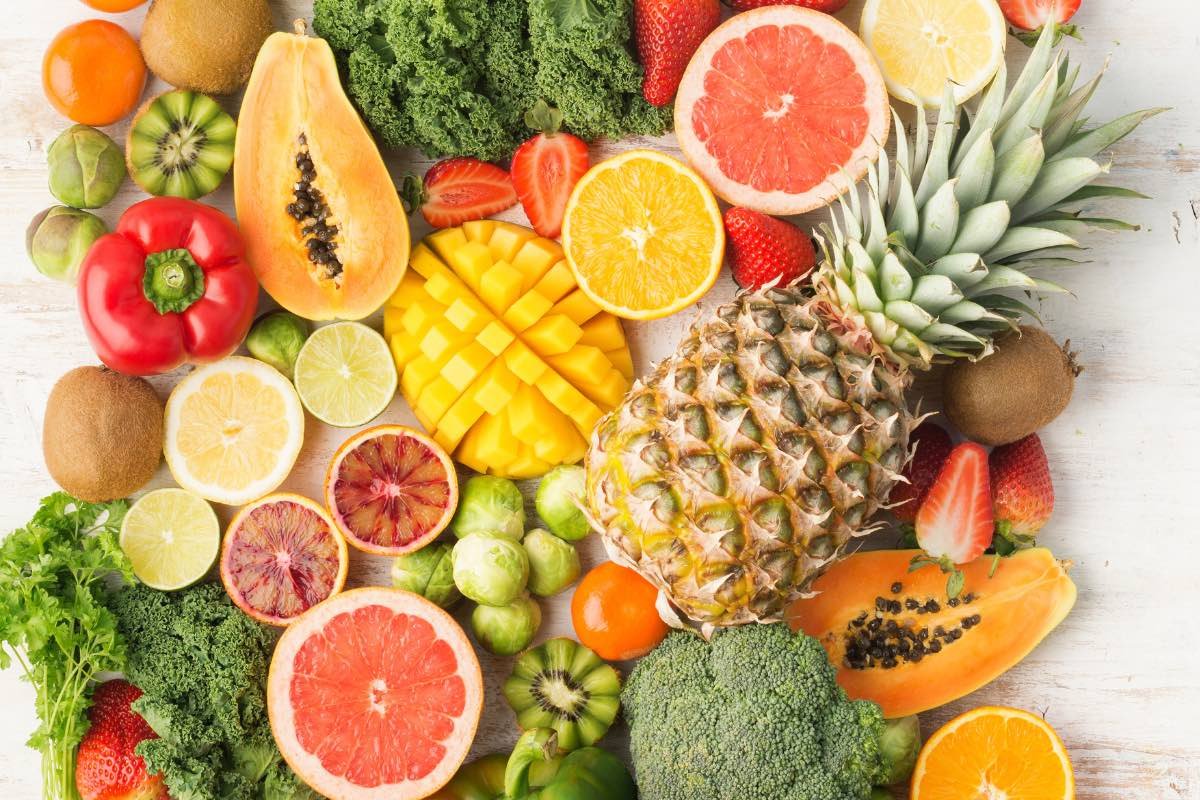What To Feed A Sick Toddler: Advice From A Dietitian
As every parent knows, toddlers are champions at picking up every single bug that’s going around.
Whether it’s a cold, flu, stomach bug or something else, sickness is a very un-fun but inevitable part of being a toddler (and the parent of a toddler!).
If you’re currently in the thick of winter bugs (or spring, summer and autumn bugs - let’s face it, they never really stop!) and you’re wondering what to feed a sick toddler, I’ve got you covered.
Aside from seeing them so miserable, one of the worst parts about our little ones being sick is the effect it has on their appetite.
Even minor illnesses can leave a toddler barely eating for days, sometimes even weeks.
Meanwhile, as parents, we know that nutritious food is important in supporting their immune system and helping them recover, so what do you do??
Here’s all my advice, tips and trips as a paediatric dietitian for feeding your sick toddler.
Hydration is priority no.1
When you’ve got an unwell toddler, the most important thing is to keep them hydrated.
Hydration plays a critical role in recovery, especially if your child is vomiting, has diarrhoea or a high fever as these all cause loss of fluid from the body and increase the risk of dehydration.
Most sick kids won’t want to guzzle glasses of water, so instead, offer plenty of fluids in the form of small sips of water, soup or diluted fruit juice.
You can also make your own icy poles with diluted fruit juice.
Oral rehydration solution and drinks are also good options if your child is showing signs of dehydration. Avoid drinks that are high in sugar as these can make dehydration worse.
Dehydration can be very serious in young children, so if your child won’t drink fluids or they’re showing signs of severe dehydration, see their GP or go to your nearest hospital emergency department.
Manage your expectations
Like adults, children’s appetites are naturally suppressed when they’re sick so that the energy normally used to digest food can be directed towards supporting the immune system instead.
So basically, their bodies are telling them that now is not the time to eat.
For this reason, many of the foods, especially solid foods, you offer will most likely be rejected, which is totally normal when your child is sick (and maybe the rest of the time too!).
There may also be other factors such as a sore throat or an upset stomach contributing to your child's lack of interest in food.
So don’t feel defeated if you’re not scoring many goals on the food and nutrition front right now.
Avoid high-fat foods
High-fat foods are digested more slowly and hang around in the stomach for longer, so they’re best avoided if your child has any sort of gastrointestinal illness as they can make nausea and vomiting worse.
Avoid resorting to sugary foods
When your toddler has barely eaten a crumb for days, it can be tempting to resort to high-sugar foods you know they’ll eat just to get them to eat something.
But the problem is that these foods often don’t offer much in the way of nutritional value and can displace their appetite for more nutritious foods.
If that’s the only thing your child will eat, go for foods that also offer nutritional value such as custard, flavoured milk or fruit-based ice blocks/popsicles.
Give it time
One amazing thing about toddler illnesses is just how long it can take for their appetite to return to normal once they’ve otherwise recovered.
It can take days and even weeks until they’re eating their usual diet again, so be patient and try to avoid resorting to pressure tactics to get them to eat.
Ensure they’re well hydrated and let their appetite be their guide while gradually expanding the variety in their diet.
Check-in with their doctor
Always check with your child’s doctor if you’re worried about how much they’re eating or drinking or if their poor appetite has been going on for a long time.
Best foods to feed a sick toddler
In most cases, it’s fine to keep feeding your child their usual diet when they're sick, assuming they’re willing to eat it.
If their appetite has been affected and they’re not into their usual meals and snacks, some of the following foods might work.
Offer small amounts of food regularly as large meals may be off-putting.
Simple foods and small frequent meals are often best, but bear in mind that children still need a balanced diet overall to avoid nutrient deficiencies, so try to get them back to their normal diet as soon as possible.
Bland foods
Bland foods such as toast, crackers, potatoes and rice may be the only thing your child can tolerate during a stomach bug which is generally OK for a limited amount of time.
If you’re offering toast or crackers, try adding some toppings such as peanut butter for extra nutrients if they’re able to tolerate these.
Porridge
A nice warm bowl of porridge is both comforting and nourishing while also being gentle on the stomach.
Add toppings such as banana, nut butter, chia or hemp seeds and yoghurt for extra nutrients, and if your child isn’t too keen on the idea of porridge, try adding a little honey to get it across the line.
Soup
Soups provide hydration and plenty of nutrients in one go. Go for smooth, easy-to-eat and digest ones like pumpkin or chicken soup.
Milkshakes and smoothies
Drinks can be a lot easier for your toddler to get down than food when they’re sick, and there are plenty of really nutritious options, especially if you make your own.
My favourite liquid meal for my kids is a smoothie made with milk, yoghurt, frozen banana and peanut butter.
Full of protein, low GI carbohydrates, calcium and fibre.
Breakfast cereal
Try serving your child’s favourite for dinner as a bit of a novelty, it might just do the trick! My kids are always excited about ‘breakfast for dinner’.
‘Bits and pieces’
One of my personal childhood favourites and something I now make for my kids all the time, ‘bits and pieces’ is exactly that - a plate of different things that I change up according to what’s in the fridge and pantry, what my kids are into and what I think they need at any given time.
This is a good option for sick kids as they’ve got a variety of options to choose from when there’s not much they feel like eating.
Fruit
Soft fruits such as banana, mango, cooked apple, avocado, melon and soft pear provide plenty of vitamins, minerals and antioxidants to support the immune system.
They’re also easy to digest and have a medium-high water content, making them a great way to get some extra fluids in and provide much-needed hydration.
Yoghurt
Yoghurt is rich in protein and calcium along with other vitamins and minerals and is easy for kids to eat so it makes a great option when they’re sick.
The probiotics in yoghurt may also help support your child’s immune system.
Go for unsweetened varieties if you can.
Pancakes
Pancakes are a classic kid-favourite and nice and gentle on the stomach too. You can also add ingredients such as wholemeal flour, banana and hemp seeds to increase the nutrient content if you like. Serve with a little honey or maple syrup.
Homemade icy poles (aka ice blocks, popsicles or iced lollies)
Sometimes, cold foods are easier for sick kids to stomach than warm foods, possibly because they have less of a strong taste and smell.
Icy poles are super simple to make, just use diluted or straight fruit juice or pureed fruit and freeze in moulds (don’t forget the stick!).
Hot chocolate
Staying hydrated is key, and hot chocolate offers plenty of nutrients such as protein and calcium along with fluid.
Their favourite meals
If your child loves macaroni cheese or chicken nuggets, now might be the time to serve them.
Yes, they might not be the most nutritious options but they still offer some nutrients and calories that will benefit your child’s recovery.
Should you really ‘starve a fever’?
The old advice to ‘feed a cold, starve a fever’ originates from the idea that fasting is a good remedy for fever and that avoiding food helps to cool the body down when it’s overheated.
Eating while fighting a cold, on the other hand, was recommended in order to help the body generate warmth.
But, the truth is that when the body is fighting any type of illness, it needs energy in order to do so, and it gets this energy from food.
So the advice should really be ‘feed a cold, feed a fever (and stay well hydrated!).
Should you avoid giving your child dairy when they’re sick?
There’s a very common theory that dairy products, particularly milk should be avoided during respiratory illnesses such as colds and flu as they are thought to increase the production of mucus.
But evidence to support this theory is limited and study results have been mixed.
Most research on the topic has concluded that rather than increasing mucus production, milk simply makes the mouth and throat feel thick, leading to the belief that milk has caused more mucus to be produced.
At this stage, more research is needed to fully understand the effects of dairy on mucus production.
But in general, the only time dairy needs to be avoided in a sick child (who normally tolerates dairy) is in the case of lactose digestion being compromised because of gastrointestinal-related illnesses.
Non-permanent lactose intolerance can develop due to gastrointestinal illnesses, and the best way to deal with this is to avoid giving your child lactose until it’s resolved.
Some children do have allergies and intolerances to cow’s milk, however. If you suspect that dairy is negatively affecting your child, discuss it with their doctor or a paediatric dietitian.
Should you give your child vitamin C?
Many parents reach for the vitamin C as soon as the sniffles begin or even as soon as the temperature starts to drop. But does it actually help?
At this stage, there isn’t much evidence that vitamin C prevents colds. But, it has been shown to slightly shorten the length of a cold and reduce its severity, so it’s definitely worth paying attention to when your little one is sick.
Most kids get plenty of vitamin C from their diet (think citrus fruits such as oranges or strawberries, potato, kiwi fruit, broccoli and tomato), so a vitamin C supplement probably isn’t necessary to support your child's immune system. But given it’s relatively safe and in most cases costs very little, it may be worthwhile as a backup. Make sure you check with your child’s doctor first.
I know from many, many personal experiences that caring for sick children is no joke!
If you’re in the thick of it, hang in there.
Prioritise hydration and offer simple, nutrient-rich foods as much as possible to support their recovery - while accepting that they might only be able to manage crackers for a couple of days.
And most importantly, always consult their doctor or healthcare provider if you have any concerns about their health during an illness, particularly if they’re dehydrated.
Wishing your little one a speedy recovery!









